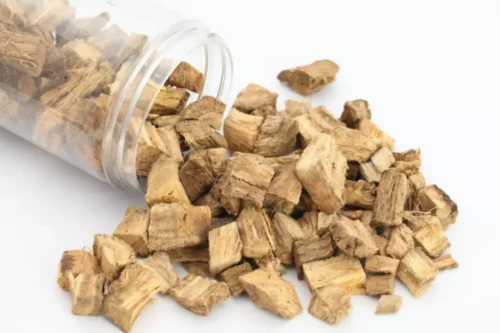Why Do I Sweat When I Drink Alcohol?

Alcohol allergy and intolerance can result in similar symptoms but are caused by different underlying factors. An immune response causes alcohol allergy, whereas the digestive system is responsible for alcohol intolerance. The relationship between alcohol and women’s sexual health is a complex issue that goes beyond the occasional cocktail.

General Health
Alcohol can trigger hot flashes, especially during a hangover when the body’s temperature starts to rise. Sweating and hot flashes are signs of the body’s fight-or-flight response. However, it’s important to know the signs of alcohol poisoning, especially after an episode of binge drinking. When you drink alcohol, it’s absorbed into your bloodstream through your stomach and small intestine.
Health Conditions
Some people receiving treatment for cancer have hot flashes and night sweats. While each patient is different, sweating can happen from a tumor, the treatment itself or drugs that might be prescribed for pain or other reasons, according to the National Cancer Institute. Duration of symptoms can vary depending on the amount of alcohol a person has consumed, the rate at which their body processes alcohol, and their overall health.
Alcohol withdrawal
Alcohol consumption triggers the dilation of blood vessels, which causes increased blood flow throughout your body and particularly to your skin. As a result, your blood vessels expand, bringing more blood to the surface of your skin, and this increased blood flow generates a sensation of warmth. It’s also worth noting that, apart from alcohol withdrawal, hot flashes may occur as a result of alcohol intolerance — which is when our body has an adverse reaction to alcohol.
- Hot flushes, commonly referred to as alcohol flush reactions or hot flashes, are a physiological response that can occur after drinking.
- Anxiety related to poor food choices especially arise if you’re trying to improve your diet or make lifestyle changes.
- This expansion leads to increased blood flow near the skin, resulting in a temporary flush.
- Whole body hot sensation transiently increased after alcohol drinking, whereas it changed little after water drinking.
- But, when you’ve been drinking, your liver is madly metabolising all the alcohol, breaking it down to get it out of your blood stream.
- Unfortunately, alcohol is quite calorie-dense, providing seven calories per gram.
- This reaction to alcohol is very different from the “beer blanket,” feeling, but can definitely make one feel very warm even after a few sips.
- Melody is here to help as you adjust to a life with less (or no) alcohol.
- Alcohol also seems to act on some of the same brain areas activated by sweet tastes.
- After a 30-min resting period, the subject drank either 15% alcohol (alcohol session) at a dose of 0.
This can lead to facial flushing, dizziness, rapid heartbeat, headache and nausea. The liver can only metabolize a certain amount of alcohol at one time, approximately one drink per hour. This is the equivalent of one 12-ounce beer, a 1.5-ounce spirit or a 5-ounce glass of wine, according to the National Institute on Alcohol Abuse and Alcoholism. When you drink more than this in an hour, alcohol builds up in body tissues and the bloodstream. Additionally, an April 2016 meta-analysis published in the Journal of Menopausal Medicine demonstrated that, though not to a great extent, obesity is linked to an increased risk of hot flashes in women. People experiencing mild night sweats from occasional alcohol consumption may find relief using home remedies.

But the loss of inhibition probably also underlies risk taking behaviour while under the influence and goes some way towards explaining the association between drinking and accidents and injuries. Hot flashes after drinking can be normal for some individuals, but excessive or persistent flushing might indicate an underlying issue. Fatigue, jaundice, abdominal pain, and elevated liver enzymes are common early signs. Hot flushes are more common in people of East Asian descent, which is why it’s sometimes called the “Asian flush.” However, it can occur in people of other ethnicities as well.
That said, how much you sweat, or the intensity of the episode often depends on the amount of alcohol you consumed. This shift in blood supply throughout your body causes you to actually lose heat, but you don’t notice because during this process you feel warmer. This is unlikely to cause you any health concerns when you are in a warmer environment. According to the National Institute on Alcohol Abuse and Alcoholism4, it’s thought Halfway house that with reduced quantities of this enzyme, certain by-products build up in the body which cause the flushing. The marked vasodilation in people with this genetic trait increases the volume in the blood vessels and reduces blood pressure – making them prone to low blood pressure5 and dizziness. The warm and toasty feeling after drinking alcohol can be accompanied by sweating.
Brain Changes

Whatever you decide to do, make sure to drink in moderation and be why does wine make me hot mindful of the signs your body shows you. And to prevent the condition from rearing its ugly head altogether, stick with Sunset Asian Flush Pills. Your body can typically metabolise about one serving of alcohol each hour. If you drink more than that, your body will struggle to get rid of these toxins fast enough, including acetaldehyde. Developing a habit of using alcohol to ease anxiety can cause you to drink more, which can turn into a destructive cycle in which higher levels of anxiety trigger more consumption, further increasing anxiety. My greater concern was that Sarah’s reliance on alcohol to lower her sexual inhibitions had led to emotional detachment from Bill and a diminished ability to connect authentically.

Sometimes the flushed skin can even look like hives or urticaria, similar to what you’d see during an allergic reaction. The skin usually feels hot to the touch and can be bright red – not exactly the look you’d want out at the bar. As always, it’s also important to drink in moderation and avoid binge drinking, which could make the health risks even more likely. When people have anxiety, drinking alcohol might seem like an effective way to cope. And though the immediate effects might lessen some of the worry or dread you feel, this change is short-term, and the long-term consequences can make matters worse.

